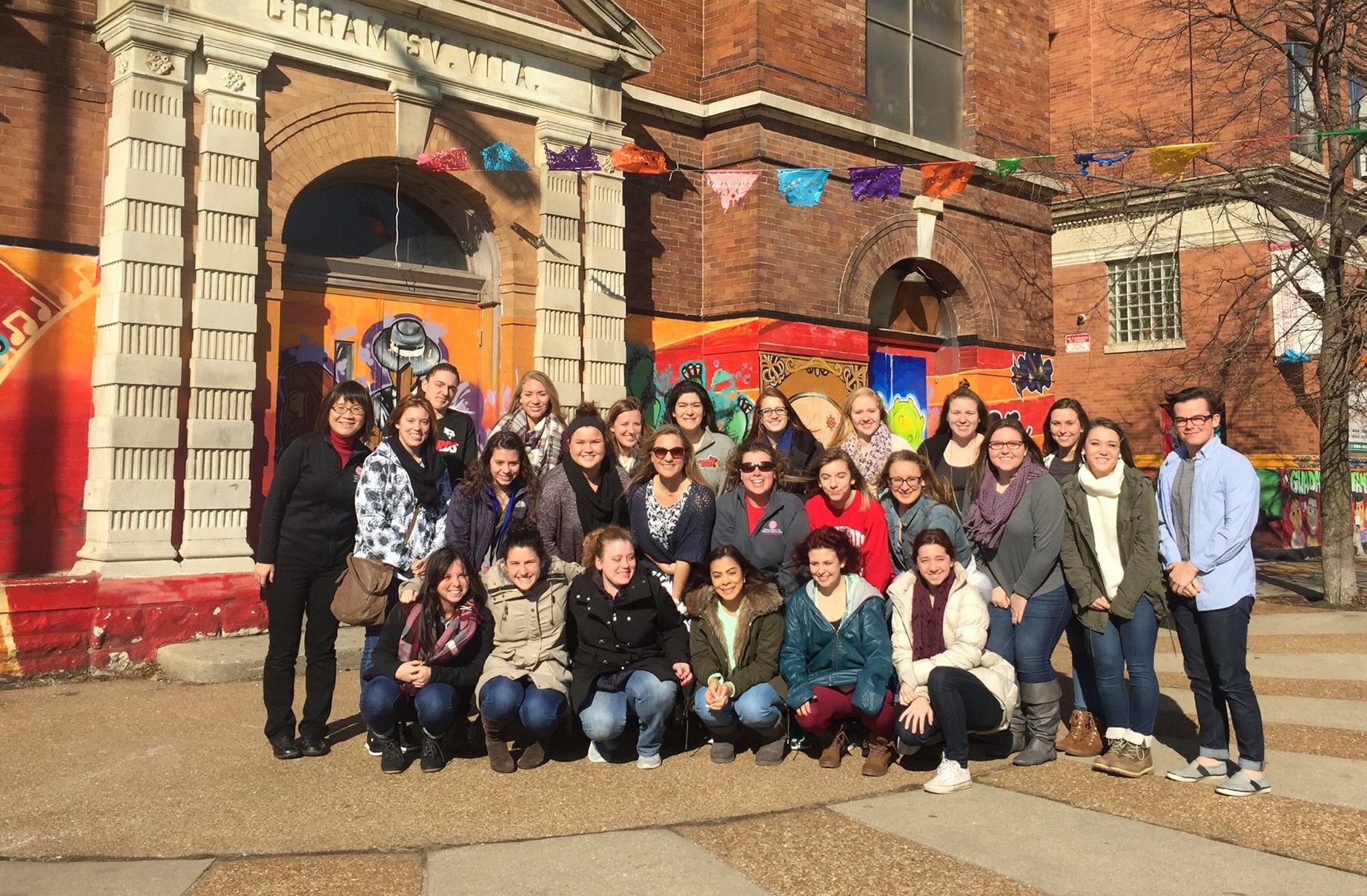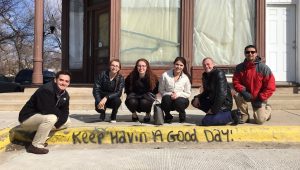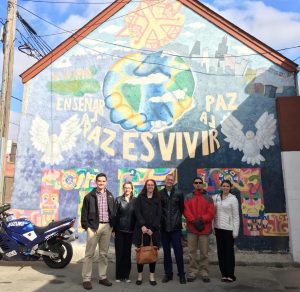The mile-long stretch between bustling Harrison Park and historic music venue Thalia Hall holds a variety of Pilsen’s many independently-owned businesses.
Pilsen, a community on Chicago’s southwest side has cultivated a strong heritage and rich working class legacy though many of these shops and eateries. From Café Jumping Bean, a neighborhood staple for over 20 years, to Giron Books, a Spanish language bookstore, 18th Street has fostered the community’s identity through decades of cultural change.
This semester, as part of their clinical visits to Pilsen, Illinois State University students participated in self-guided tours of the neighborhood. Armed with a map of popular establishments and murals on 18th Street, the students explored the neighborhood in small groups.
“Urban environments are usually unfamiliar to the majority of students that go on this tour,” said Esther Ikoro of The Resurrection Project, who helped develop the map and accompanying guide. “From what I’ve observed, simply being able to walk around on their own dispels some myths they have about urban settings and some misconceptions about what the infrastructure, everyday people, and atmosphere are like.”
In order to keep students thinking critically during this unstructured time, some professors gave their classes goals for the self-guided tour. One class was required to visit the National Museum of Mexican Art, the largest institution dedicated to Mexican art in the nation. Other students were tasked with taking photos of the murals that have become a dominant part of the neighborhood’s landscape. Another class was asked to write down observations during their tour that challenged their preconceived notions of Pilsen.
Students used these guidelines to not only enrich their understandings of community assets, but also prepare for the bus ride back to campus: many returned from their tour with paletas, elotes, mangoes, and pastries from local bakeries and street vendors.
The Chicago Teacher Education Pipeline will continue work with The Resurrection Project to provide more opportunities for experiential learning, and the changes in the demographics and identity of Pilsen will open doors to conversations on community development and displacement.
“The self guided tour is important because it humanizes the theoretical concepts we often discuss with students such as gentrification, shifting culture, predatory lending, and advocacy,” said Ikoro.
“The students loved the trip, and the immediate debrief on the way home was one of the best,” said Ellis Hurd, associate professor in the College of Education, who brought his class on middle level education to Pilsen for clinical observations. “It seemed like the trip not only brought us closer together as a class, but it served to spearhead some of the students toward a more authentic and transformative change. They talked about getting into urban environments, getting back to church, getting to schools this summer, considering STEP-UP and studies abroad.”



